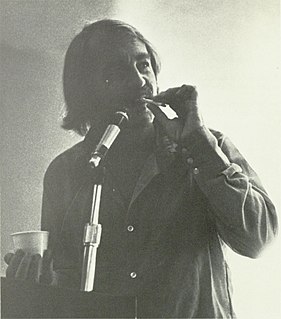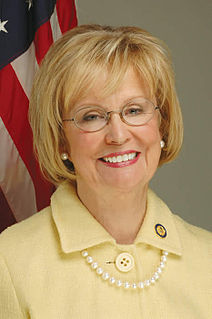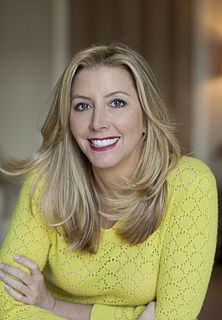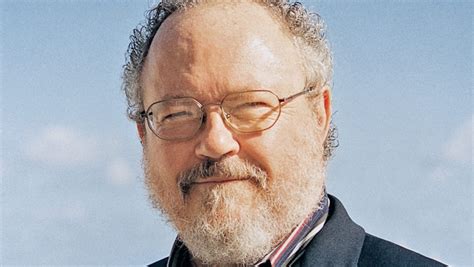A Quote by Russell Banks
One of the most difficult things to say to another person is, 'I hope that you will love me for no good reason.' But it is what we all want and rarely dare to say to one another, to our children, to our parents and mates, to our friends, and to strangers, especially to strangers who have neither good, nor bad reasons to love us.
Related Quotes
We are not commanded (or forbidden) to love our mates, our children, our friends, our country because such affections come naturally to us and are good in themselves, although we may corrupt them. We are commanded to love our neighbor because our natural attitude toward the other is one of either indifference or hostility.
We searchers are ambitious only for life itself, for everything beautiful it can provide. Most of all we love and want to be loved. We want to live in a relationship that will not impede our wandering, nor prevent our search, nor lock us in prison walls; that will take us for what little we have to give. We do not want to prove ourselves to another or compete for love.
The paradox is that exactly the reverse is true. Everything that’s really worthwhile in life came to us free; our minds, our souls, our bodies, our hopes, our dreams, our ambitions, our intelligence, our love of family and children and friends and country. All these priceless possessions are free.
But the things that cost us money are actually very cheap and can be replaced at any time. A good man can be completely wiped out and make another fortune. He can do that several times. Even if our home burns down, we can rebuild it. But the things we got for nothing, we can never replace.
I believe that the most urgent need of parents today is to instill in our children a moral vision: what does it mean to be a good person, an excellent neighbor, a compassionate heart? What does it mean to say that God exits, that He loves us and He cares for us? What does it mean to love and forgive each other? Parents and caregivers of children must play a primary role in returning our society to a healthy sense of the sacred. We must commit to feeding our children’s souls in the same way we commit to feeding their bodies.
I'd almost say hope isn't what it used to be. It's very difficult today to be a teacher. I speak to children. And tell them, look, no matter what, you must have hope. You must. When I invoke Camus, who said when there is no hope, you must invent hope. . .hope is something that is not what God gives us. It's like peace. It's a gift that one can give to one another. Only another person can push me to despair. And only another person can push me to hope. Its my choice.
Most of us want to tell our coworkers or friends, or husbands or wives, our ideas. For what reason? We want validation. But I feel ideas are most vulnerable in their infancy. Out of love and concern, friends and family give all the reasons or objections on why [you] shouldn't do it. I didn't want to risk that.
What is a child, but a piece of the parent enrapt up in another skin? And yet our dearest children are but as strangers to us, in comparison of the unspeakable dearness that was between the Father and Christ. Now, that he should ever be content to part with a Son, and such an only One, is such a manifestation of love, as will be admired to all eternity.
Normally we divide the external world into that which we consider to be good or valuable, bad or worthless, or neither. Most of the time these discriminations are incorrect or have little meaning. For example, our habitual way of categorizing people as friends, enemies, and strangers depending on how they make us feel is both incorrect and a great obstacle to developing impartial love for all living beings. Rather than holding so tightly to our discriminations of the external world, it would be much more beneficial if we learned to discriminate between valuable and worthless states of mind.
The only things in which we can be said to have any property are our actions. Our thoughts may be bad, yet produce no poison; they may be good, yet produce no fruit. Our riches may be taken away by misfortune, our reputation by malice, our spirits by calamity, our health by disease, our friends by death. But our actions must follow us beyond the grave; with respect to them alone, we cannot say that we shall carry nothing with us when we die, neither that we shall go naked out of the world.
We're all strangers connected by what we reveal, what we share, what we take away--our stories. I guess that's what I love about books--they are thin strands of humanity that tether us to one another for a small bit of time, that make us feel less alone or even more comfortable with our aloneness, if need be.
They say that Hope is happiness But genuine Love must prize the past; And Mem'ry wakes the thoughts that bless: They rose first -- they set the last. And all that mem'ry loves the most Was once our only hope to be: And all that hope adored and lost Hath melted into memory. Alas! It is delusion all-- The future cheats us from afar: Nor can we be what we recall, Nor dare we think on what we are.
When we choose to be parents, we accept another human being as part of ourselves, and a large part of our emotional selves will stay with that person as long as we live. From that time on, there will be another person on this earth whose orbit around us will affect us as surely as the moon affects the tides, and affect us in some ways more deeply than anyone else can. Our children are extensions of ourselves.







































